Regional trails are hard-surface multiuse paths. They provide walking and bicycling connections between communities, neighborhoods, parks and natural areas. Regional trails are mostly separated from motor vehicle traffic and provide access to a variety of people: Pedestrians, bicyclists, skaters, those using micro-mobility devices (scooters, e-bikes, etc.), and others.
Regional trails are planned with many considerations for both the landscape they traverse and the variety and number of users of the trail. The width of a trail may be adjusted to meet these needs. While a standard trail width is about 12 feet wide with two-foot shoulders, sometimes trail conditions vary and allow for a wider trail or a narrower trail in some areas.
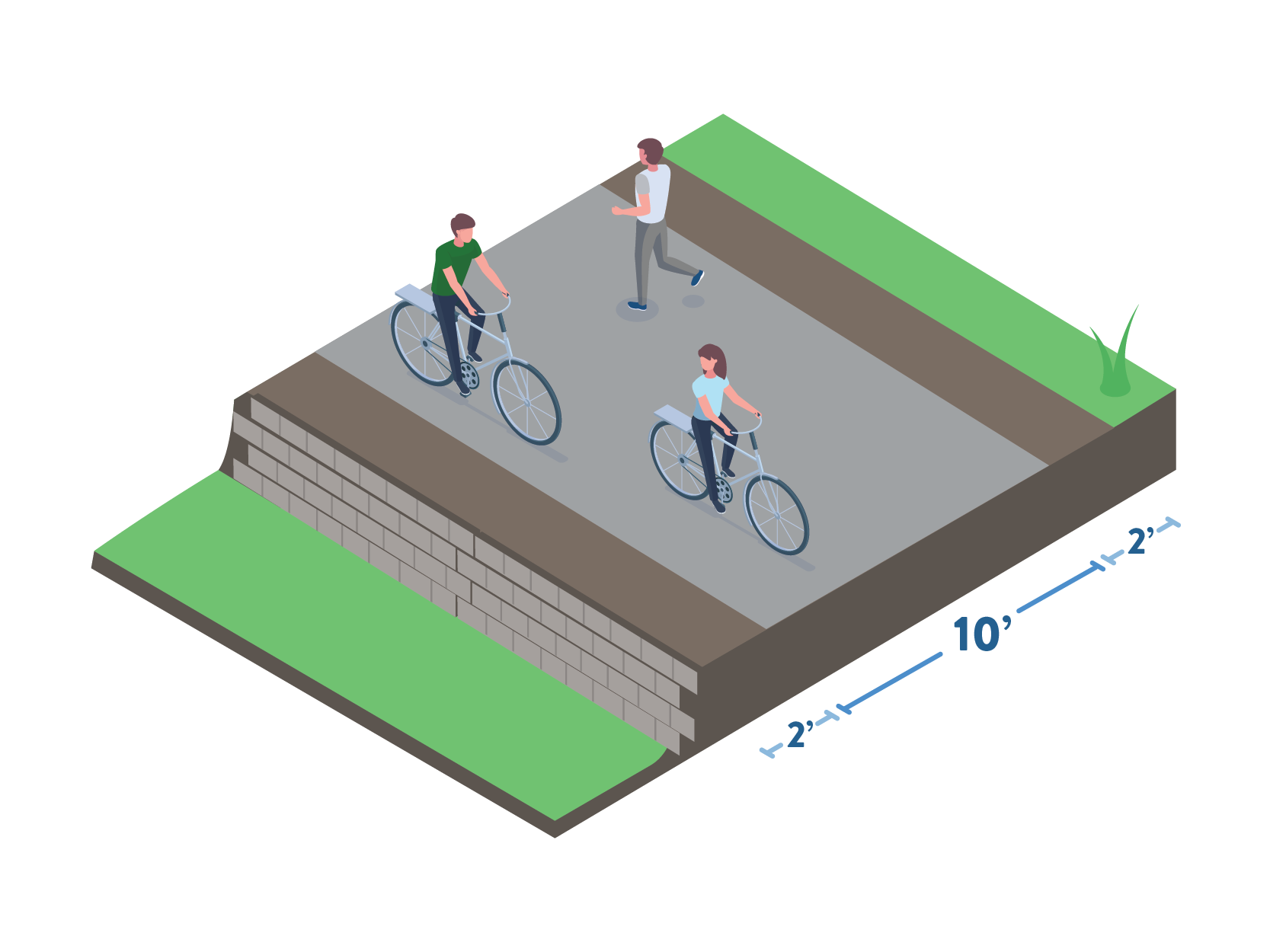
There may be places where it would make sense to narrow the trail due to environmental or physical constraints or where fewer trail users are expected. In these places, the width could be 10 feet or narrower.
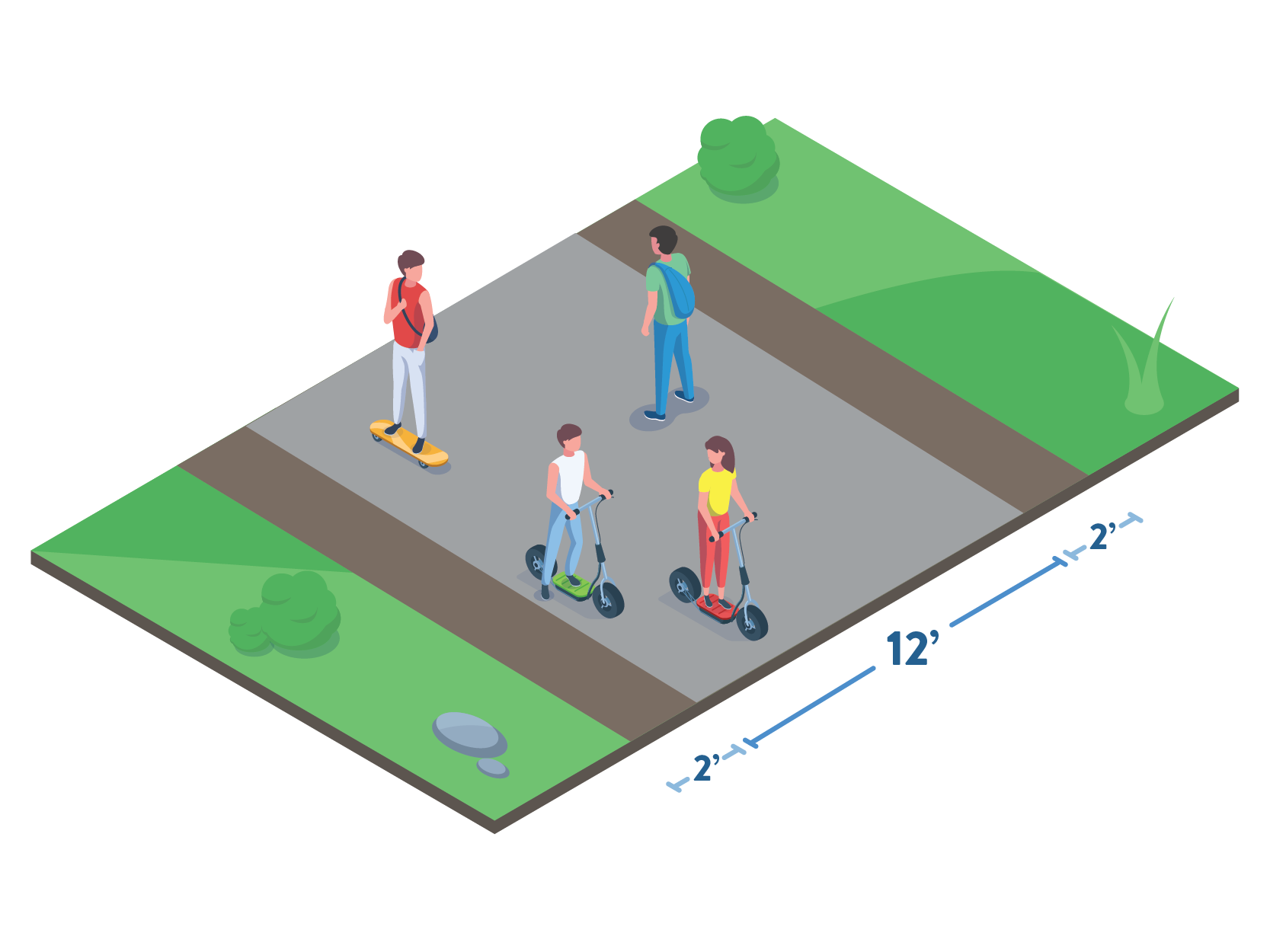
A typical regional trail cross-section includes about 12 feet of paved hard-surface, with two feet of soft-surface shoulder (dirt or gravel) on either side.
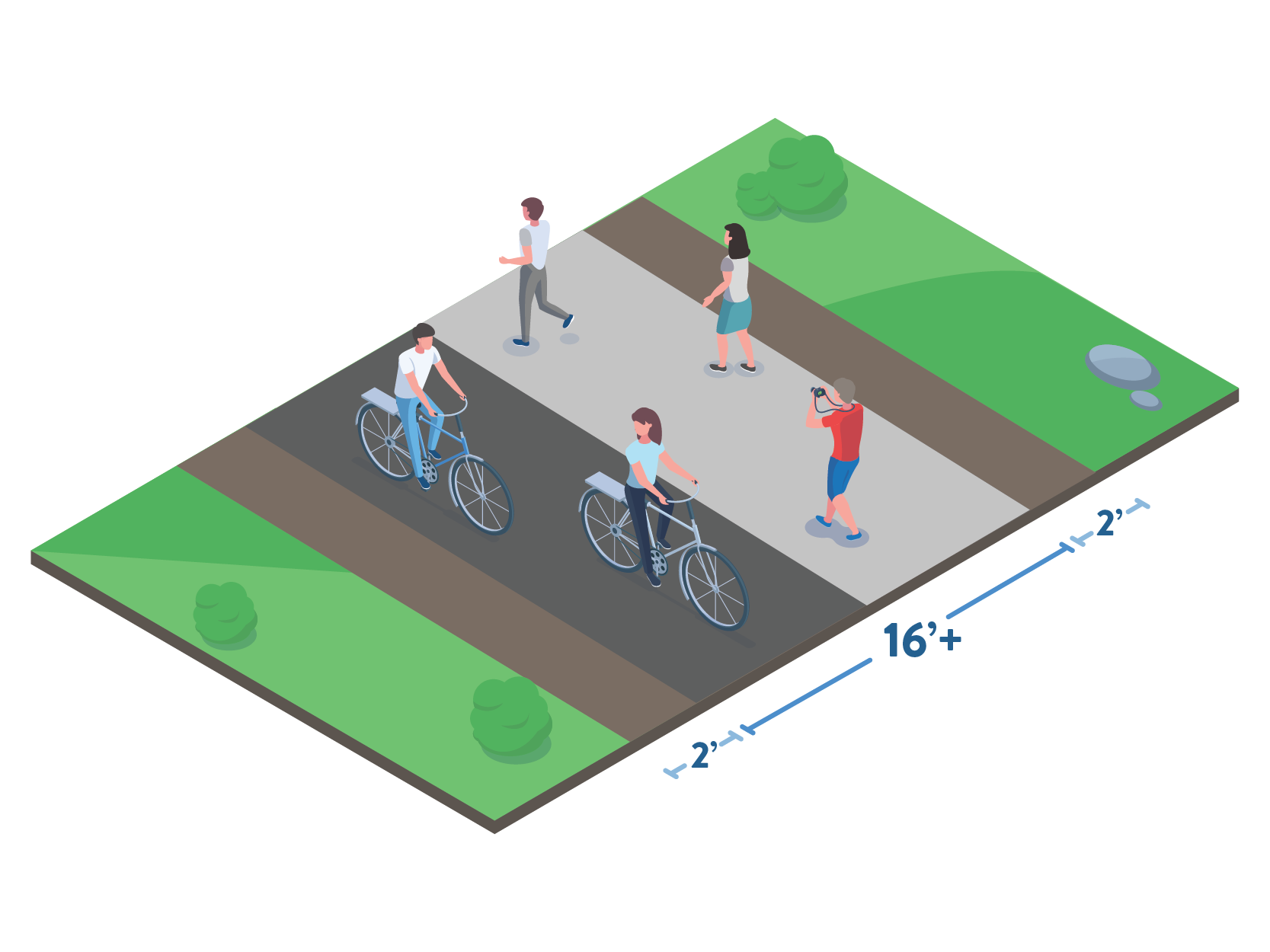
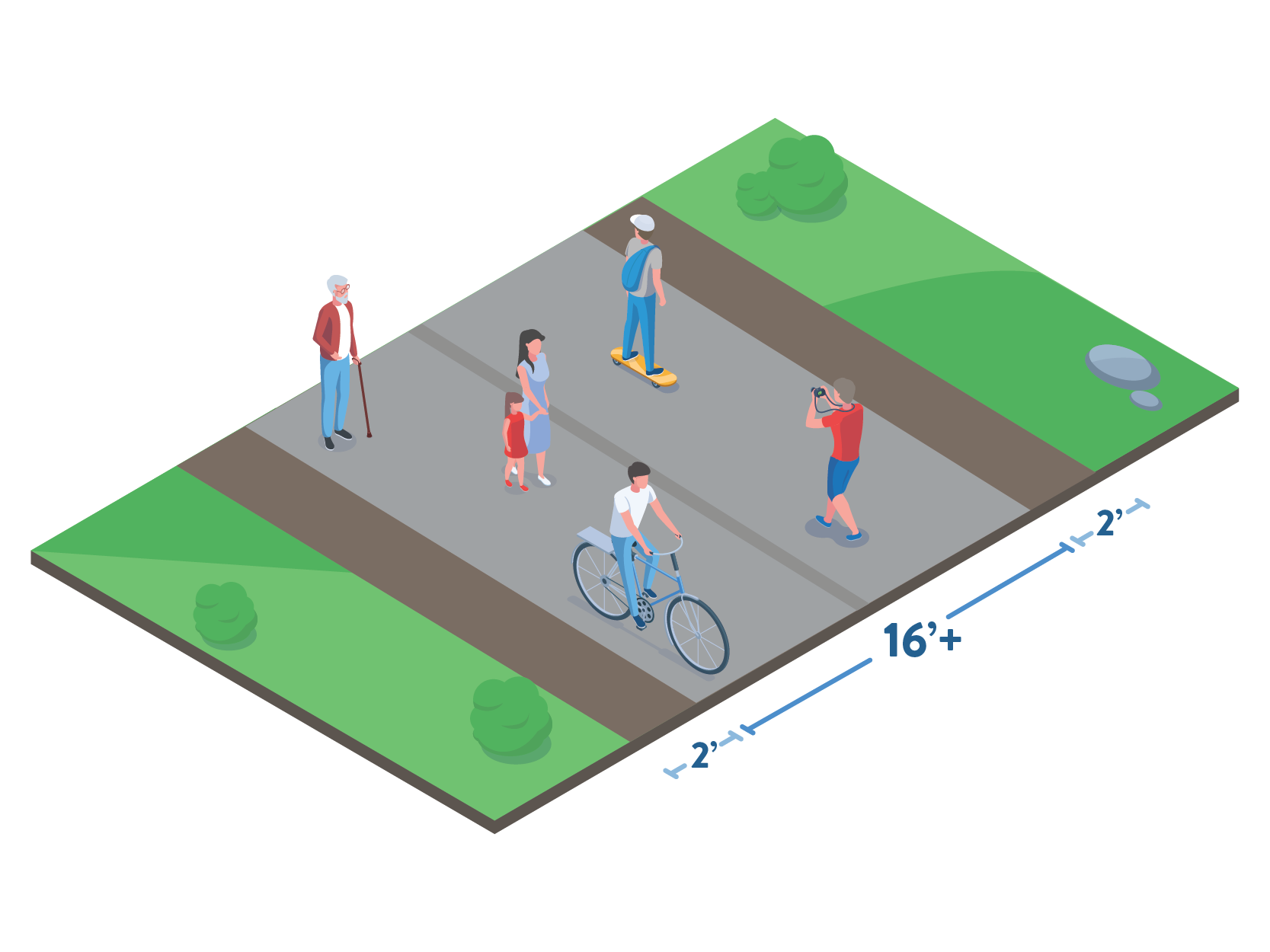
Where more trail users are expected, it may be useful to increase the width to 16 feet or more. With more users, pavement striping may be considered to separate bicycles from pedestrians or direction of travel.
When we talk about trail features, we know people imagine different things. Here are examples of various trail features found on other regional trails. We'll ask you which three features you think are most important in the survey.
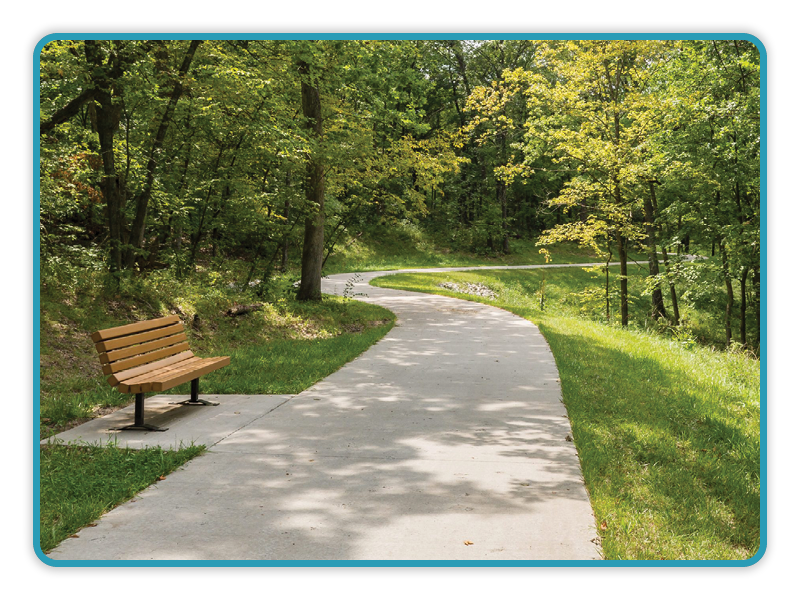
Seating/benches
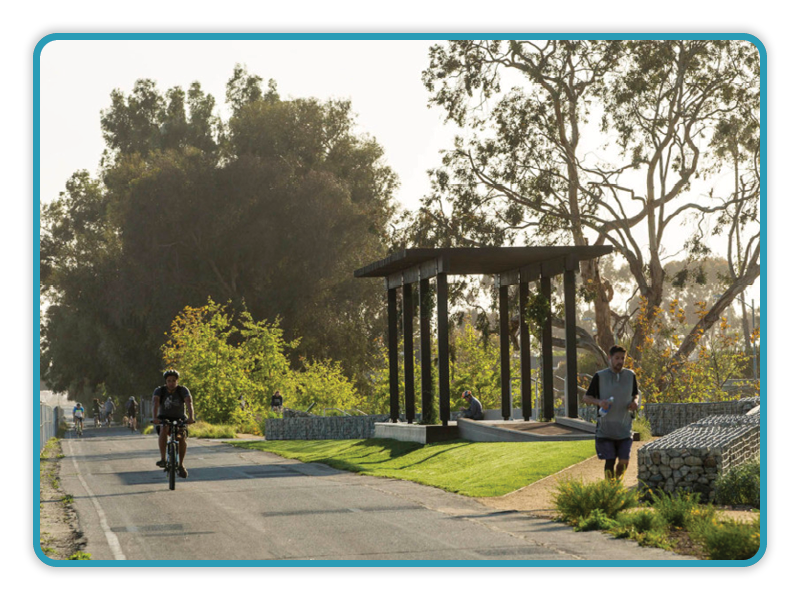
Gathering areas for groups and families
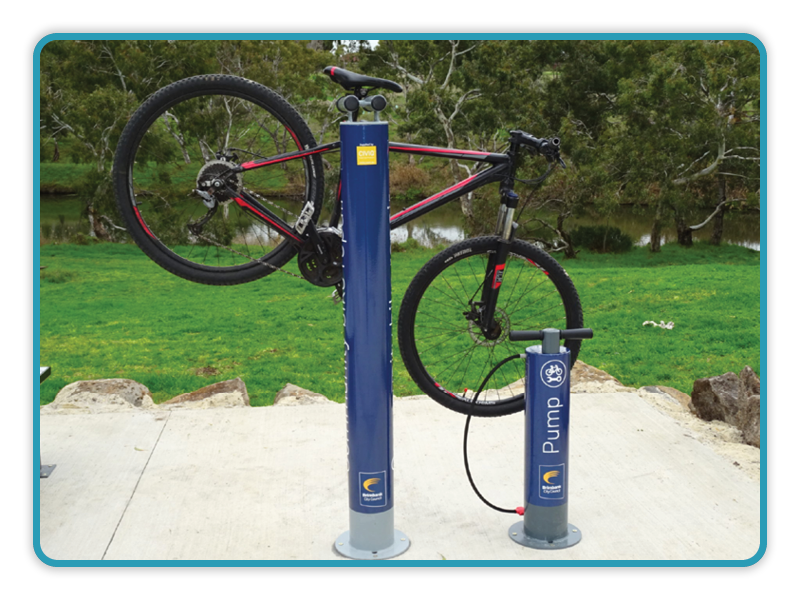
Bicycle tool station
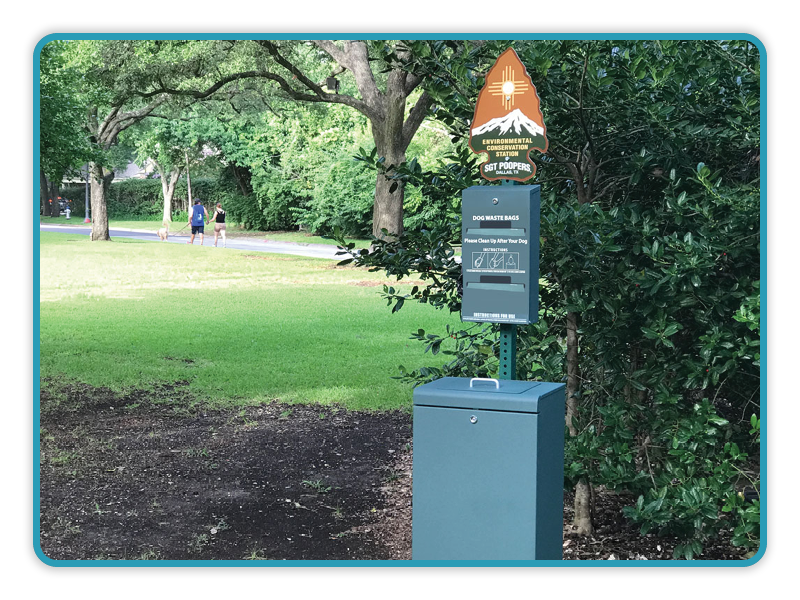
Dog waste station
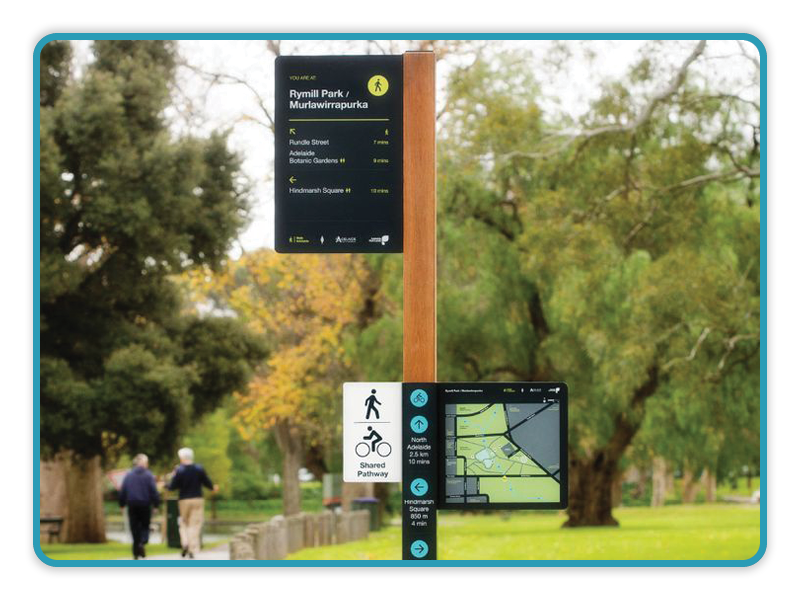
Wayfinding signs provide directions/distances to local destinations
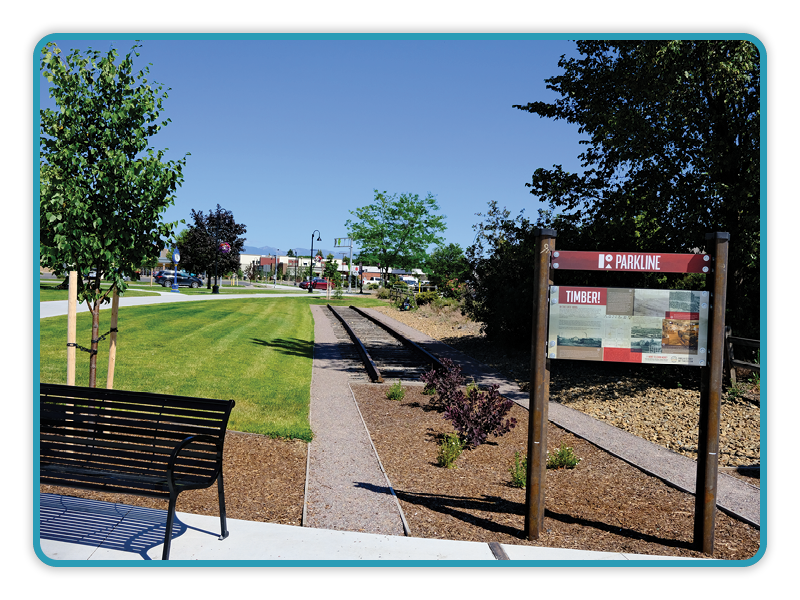
Educational signs feature local culture, history and environment
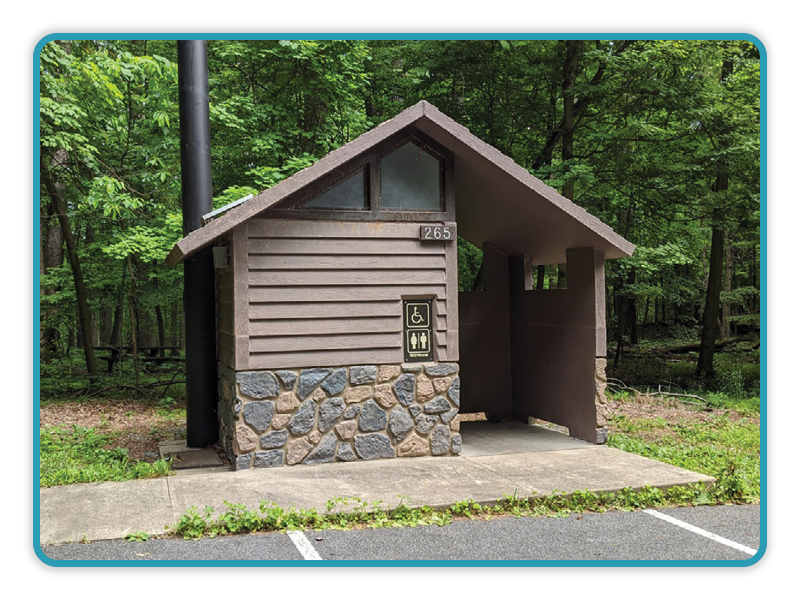
Restrooms
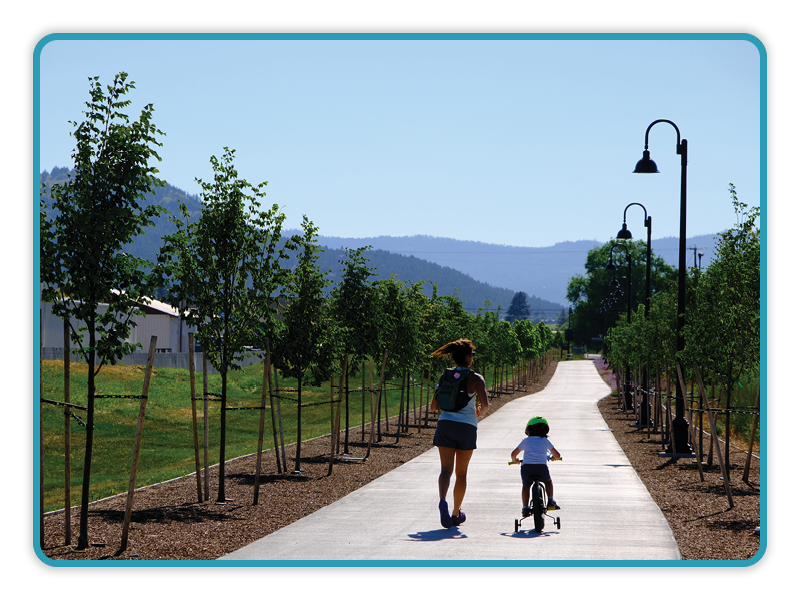
Lighting
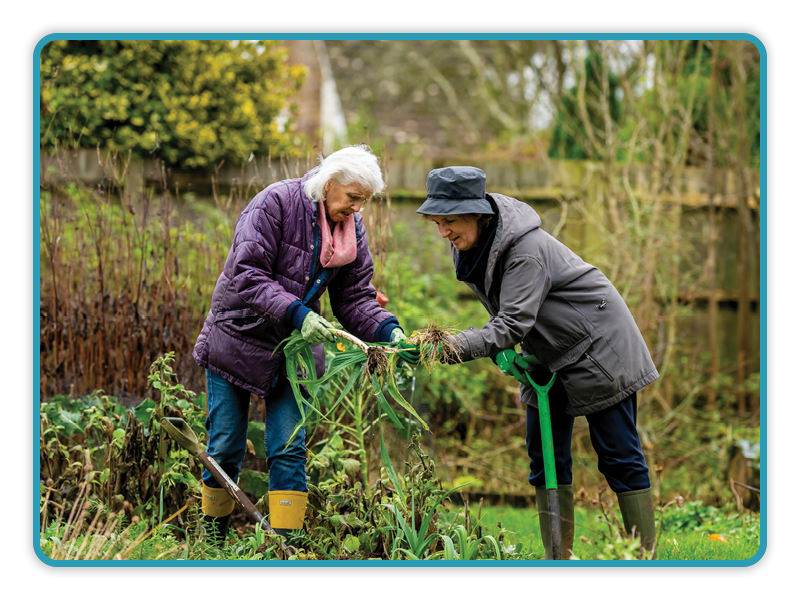
Community gardens
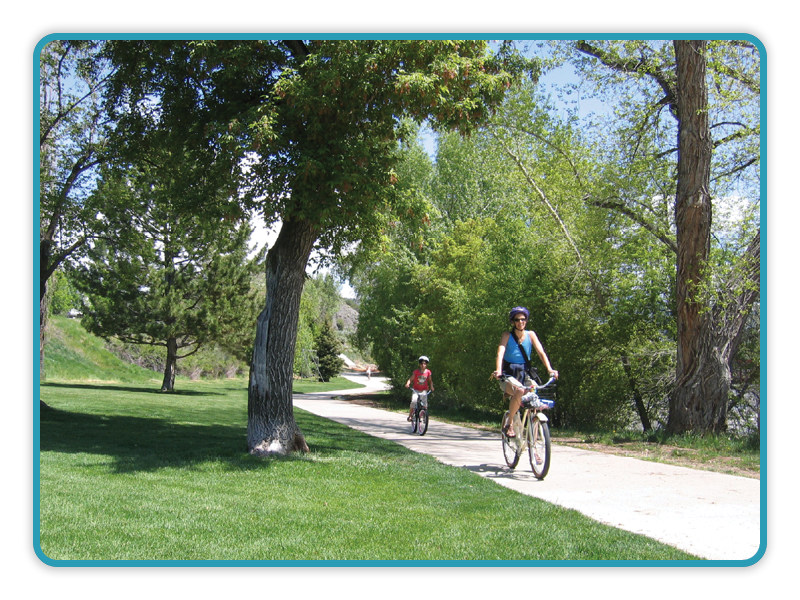
Landscaping and trees
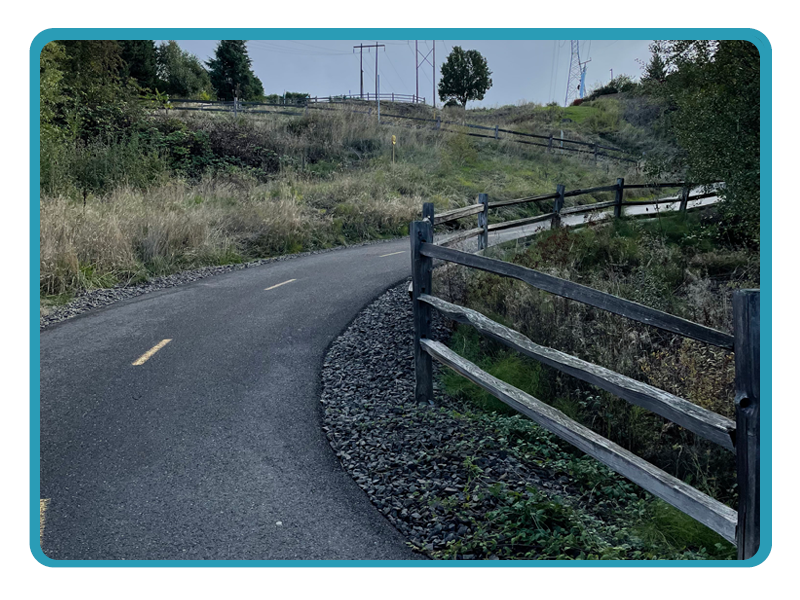
Fencing
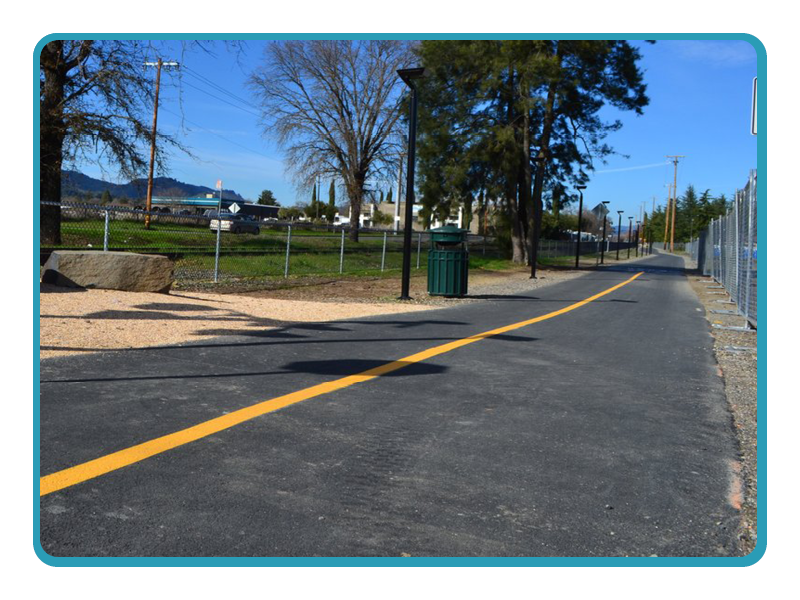
Markings to separate people walking from people biking or rolling